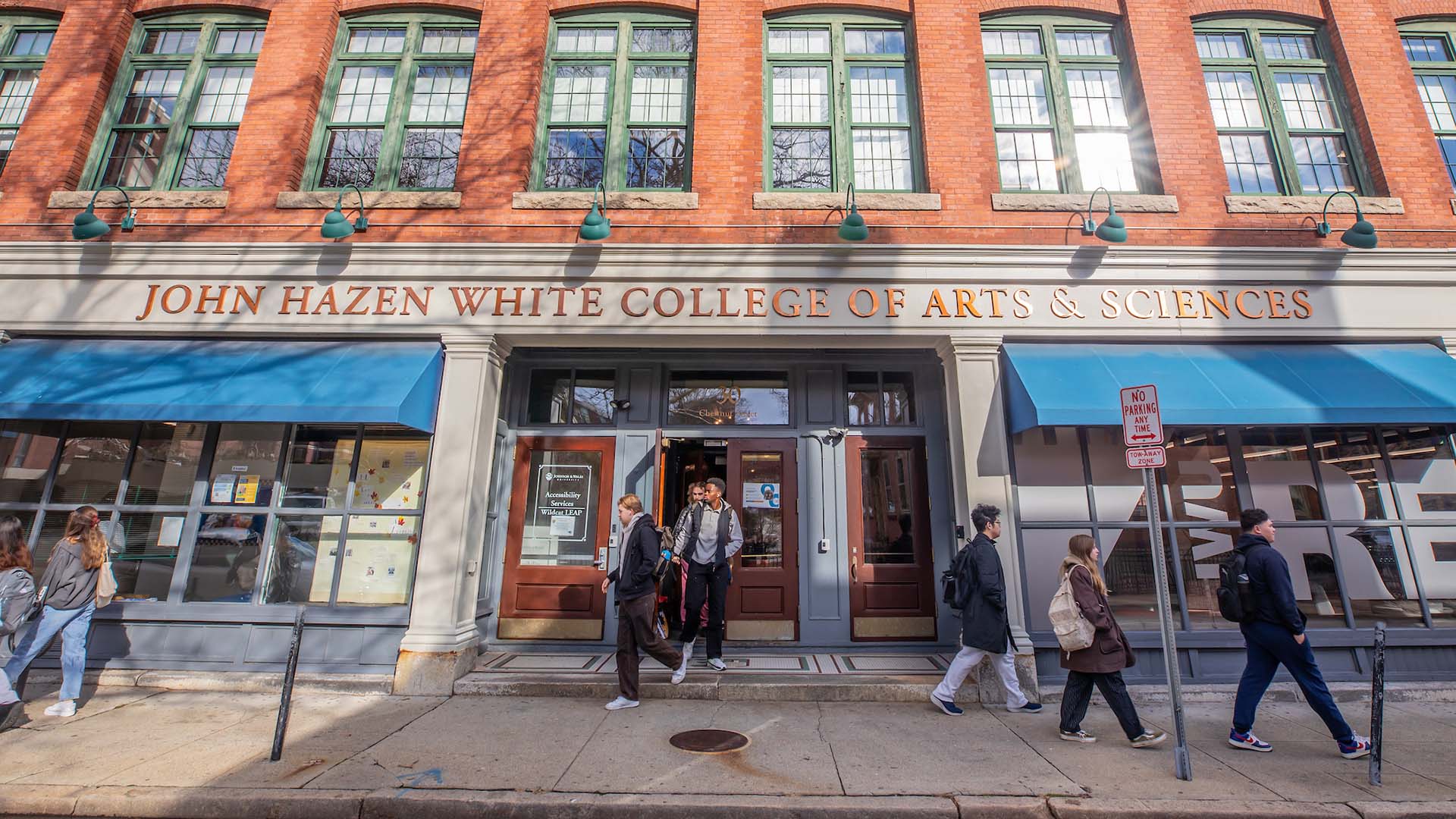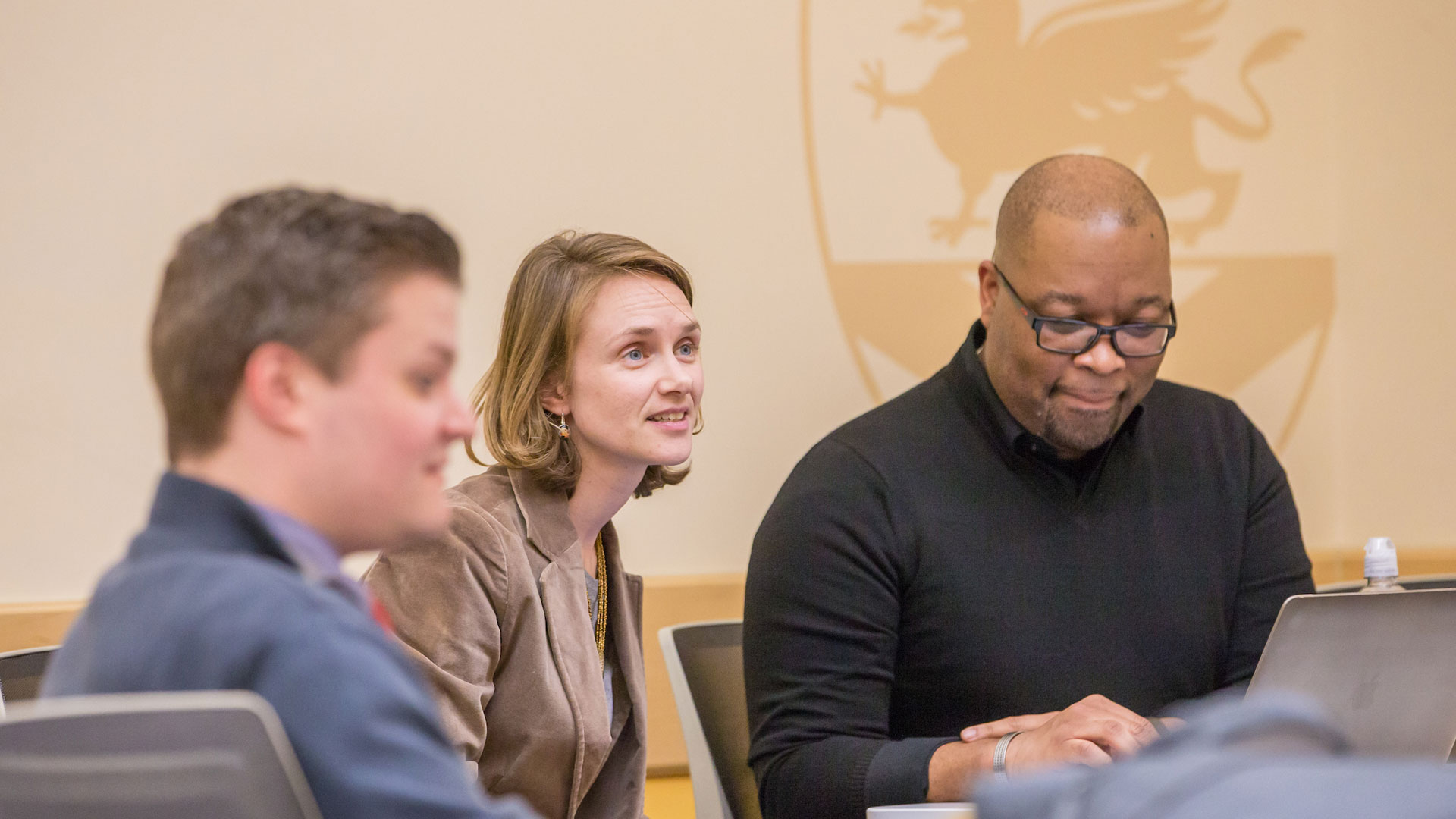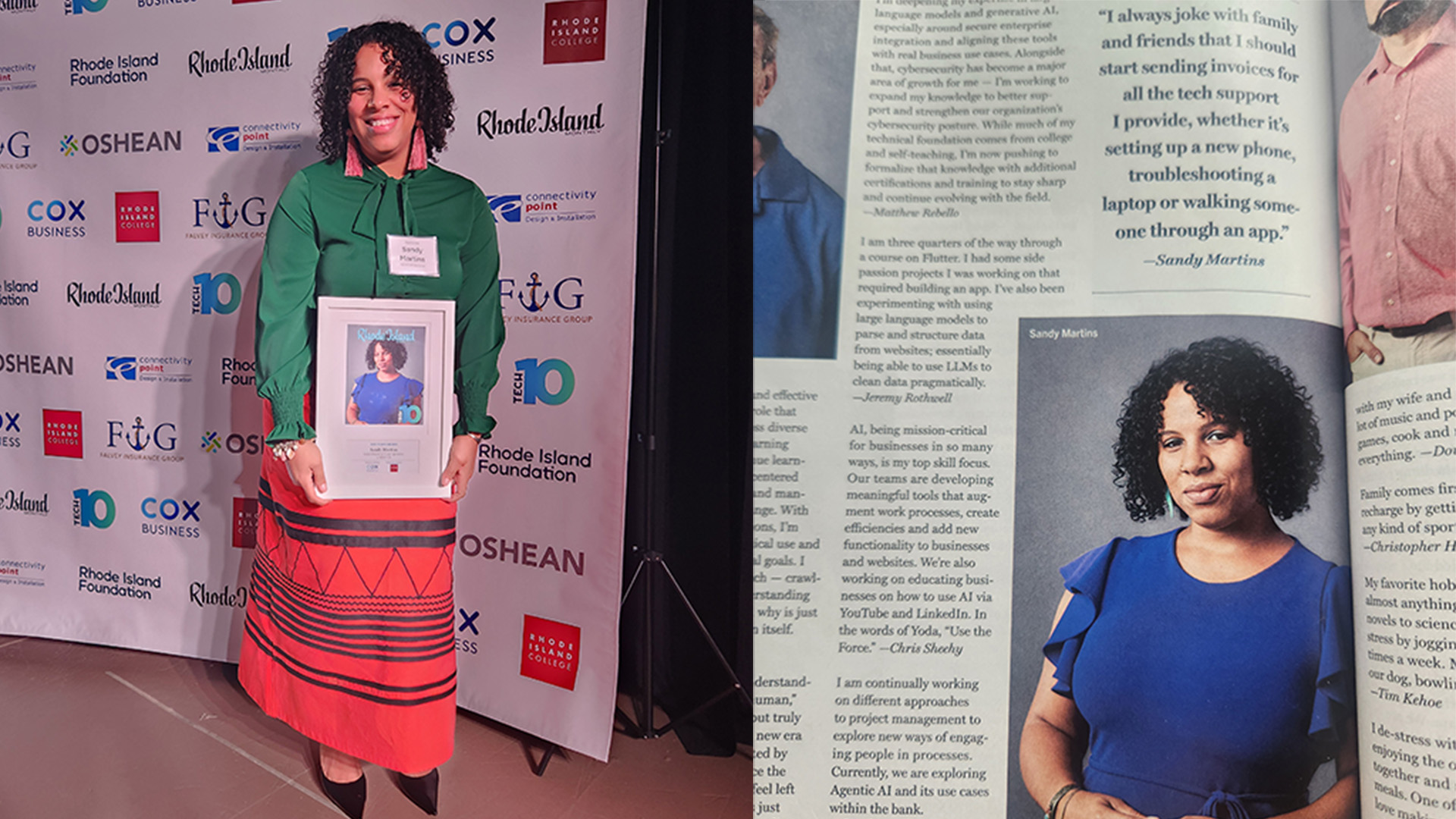A Chat with a Diplomat: Careers in the State Department
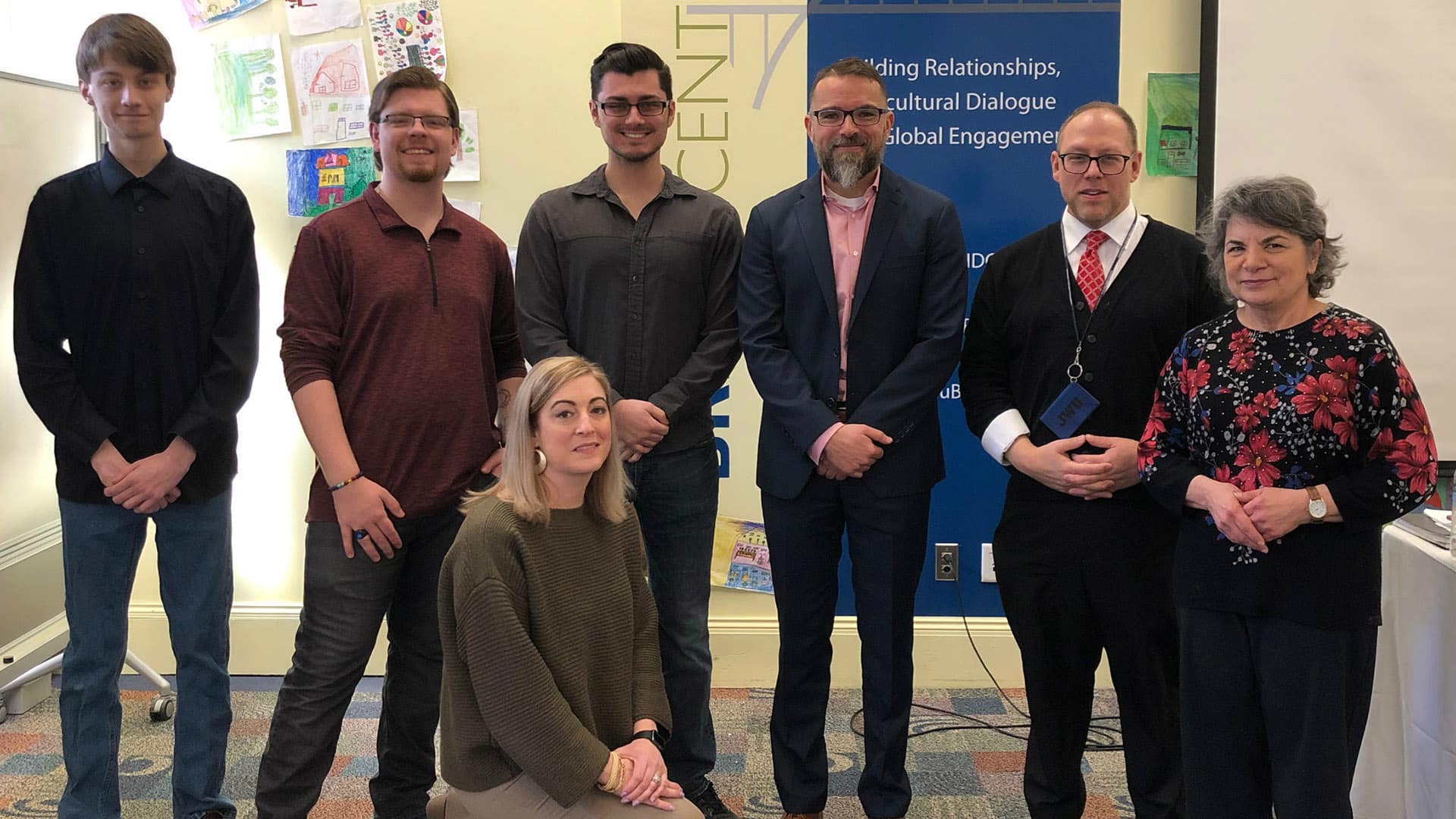
Philip Beekman, U.S. Department of State diplomat in residence for New England, visited Johnson & Wales to speak to a group of engaged students about careers in the State Department and life as an Ambassador.
About one-third of the group of students consisted of Political Science majors, with others representing areas of Criminal Justice, Food & Beverage Entrepreneurship, Tourism & Hospitality Management, Fashion Merchandising & Retailing, and Business Studies. This broad representation of majors echoed the theme of the day: there is a career for everyone and every interest in the State Department.
What Do Foreign Service Officers Do?
“The U.S. State Department and our foreign service represents America overseas and we need to be representative of America,” Beekman says. “I love that we take a diversity of students from all different academic backgrounds and that we have so many interesting things you can do overseas, no matter what your background and skills are.” Currently, says Beekman, the State Department is trying to find more information technology, engineering, or computer science majors. “We have a diverse set of jobs to fill … the critical thing is to be someone who is interested in public service and interested in things international, and regardless of what you’re studying, we probably have an opportunity for you.”
"The most important job of a foreign service officer is to help others."
Beekman opened his presentation by asking how many in the room have been in a U.S. embassy or consulate. A smattering raised their hands, citing reasons of lost passports, visa assistance and school trip visits.
Beekman said that those reasons were common, and for those reasons and more, embassies are important. “The most important job of a foreign service officer (FSO) is to help others,” Beekman says, adding that there is a breadth of opportunity to do so. With 70,000 employees in the State Department, a variety of skill sets are needed. Foreign service officers have several career tracks to follow and each one has different duties. As a foreign service officer, you might help to evacuate Americans, facilitate adoptions, fight human trafficking, work with foreign governments on technology and science, or engage, inform and influence opinion leaders and civil society to promote support for U.S. policy.
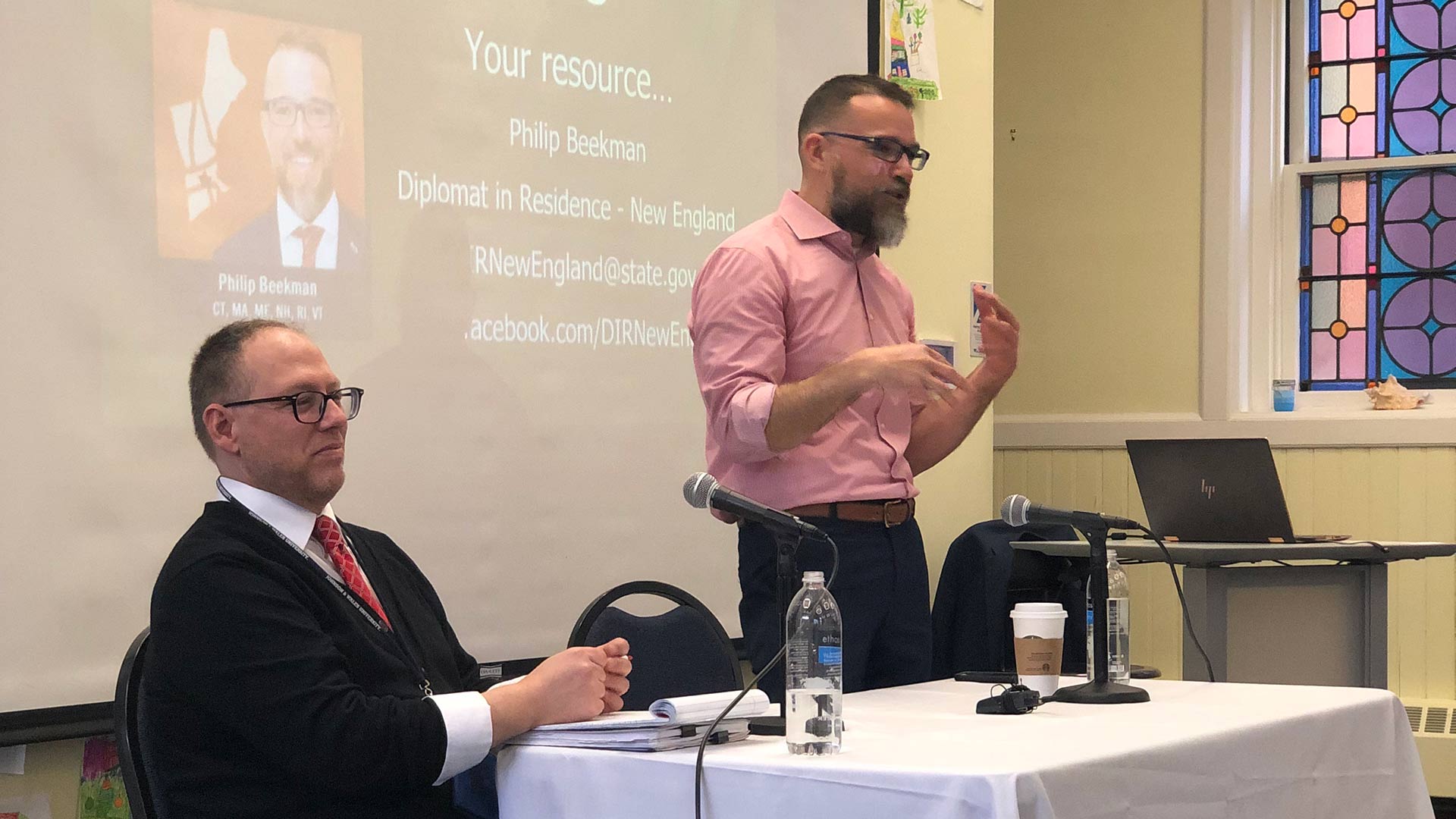
Assistant Professor Kevin DeJesus, Ph.D., of the John Hazen White College of Arts & Sciences, echoed Beekman’s thoughts on the scope of career opportunity for every major. “What is critical and distinct about the collaborative efforts within our college is that we endeavor to expand the ways in which our students across majors can envision themselves pursuing career tracks that they may have not thought of prior to hearing someone like Mr. Beekman speak,” he says.
How Do You Become a Foreign Service Officer?
During the Q&A session, moderated by DeJesus, Beekman shared more of his personal experience as a foreign service officer. He first took the state test during his junior year at Michigan State University, and “crashed and burned” in the oral assessment section. Once he received more professional experience, he did much better. “Even if you’re a little bit interested in a career as a foreign service officer, take the test,” he advises. “There are a wildly varied set of experiences once you start training — college graduates, military personnel, lawyers,” he says. “Just take the test and go from there.”
Beekman’s favorite part of his career came during what he also called the most “boring looking” part — the operations center. It’s a nondescript room, full of cubicles and outdated technology. A world clock hangs on the wall, evoking images of old-school news rooms. “It was a year of crazy constantly changing shift work,” Beekman says. “It was constantly busy and you never knew if that phone call in the middle of the night was an embassy with a terrible thing that happened that you needed to respond to, or a wrong number. And so literally it could be a sleepy night or an exciting and challenging night.”
"There are a wildly varied set of experiences once you start training."
Students had a varied set of questions for Beekman, from the process of taking the test that started his career to how he juggles marriage and kids. “Ambassador Beekman was eloquent and personable with an obvious aptitude for public speaking,” says Political Science major Dylan Fletcher ’20. “His perspective and explanation of both his role as a public affairs officer, and of other positions within the State Department have presented me with a new captivating possible career path as a major in Political Science.” Political Science major Cody French ’22 also notes that the presentation opened up a world of careers he never knew existed. “I had never seriously considered working for the State Department,” he says. “I didn’t understand how many career options there were ... and how many opportunities those options provide. Seeing that the Department was looking for everything from health workers and administrators to diplomats and translators was a pleasant surprise.”
What is Life Like as an FSO?
It’s one thing to join the foreign service and travel the world when you’re young and single — but how do families do it? Beekman and his wife are both foreign service officers, so they deal with the difficulties of trying to get jobs at the same post at the same time. In an ideal world, Beekman says, one spouse has the FSO job, and the other has a job where telecommuting is possible — graphic design, writing, or IT, for example. In reality, however, one spouse’s career will often take a hit. It’s one of the complications of a career in foreign service, but the benefits outweigh the downsides. The government provides housing and utilities in your overseas posts, as well as an educational stipend for your children to attend school. The government also offers a student loan repayment program if you qualify.
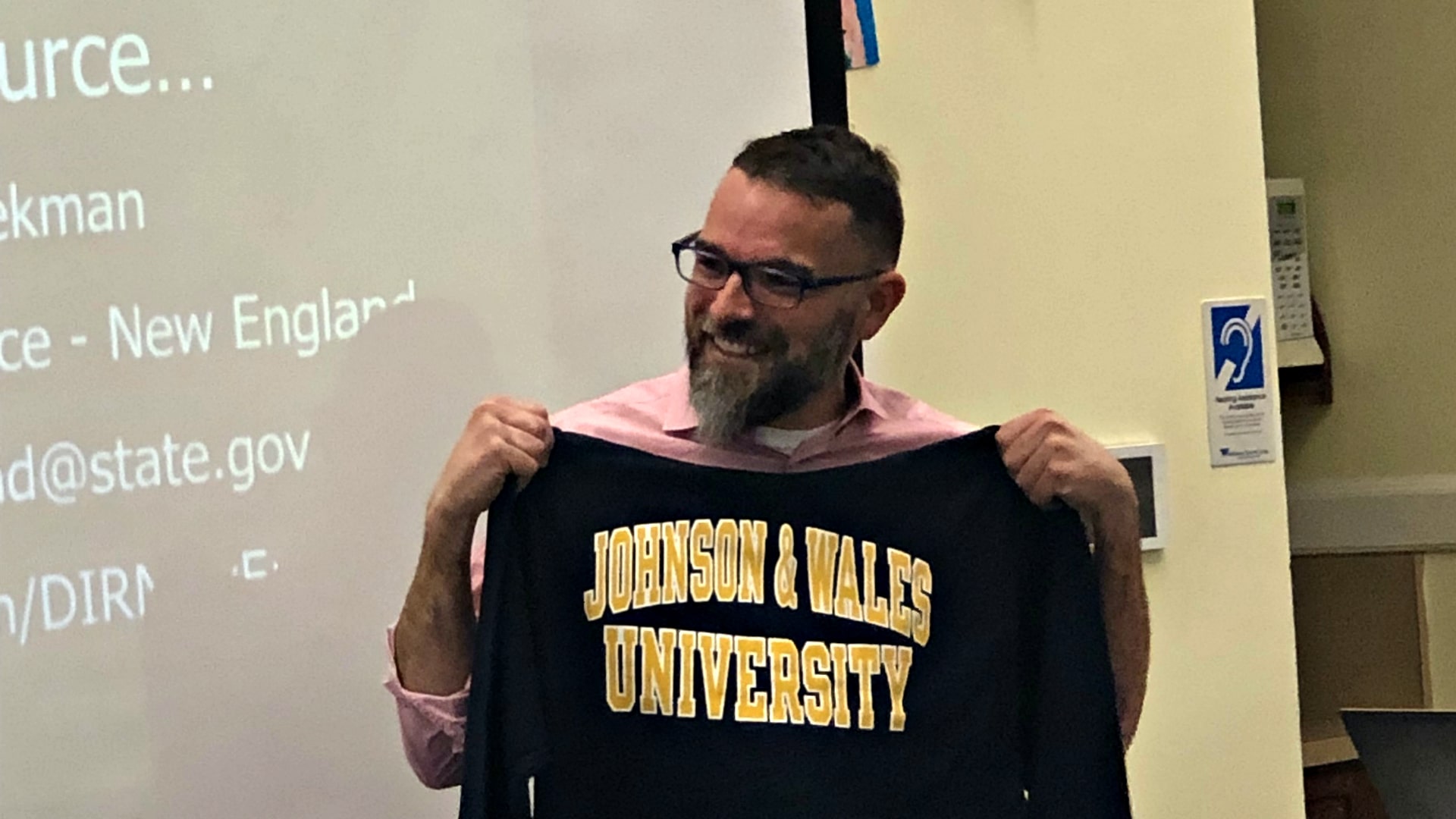
These tangible benefits, however, pale in comparison to the benefits of experiences you receive from living in a foreign country, he adds. Oftentimes as an FSO, says Beekman, you are the first American people will have met. As such, you may receive unique experiences that show off the host country’s sense of hospitality. If you’re visiting a brewery, for example, and they learn you’re an American ambassador, it’s highly possible you’ll go from having a nice drink to receiving a personal tour of the brewery, given by the brewer himself. It is these one-of-a-kind experiences, both on and off the clock, that make this career branch so special.
“I loved serving in Slovenia,” Beekman says. “I liked it so much I went there twice. That’s my favorite part of the foreign service: you discover places you never knew existed and fall in love with them.”
